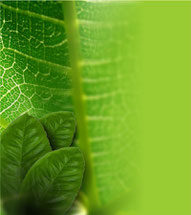Herbs - Medicinal Plants
Papaya. Properties, content. Papaya Benefits
what is Papaya?. Papaya Properties. Scientific name. Identification, origin, content and active ingredients. Papaya benefits. Plant, leaves, fruit and flowers.
Characteristics and Properties of Papaya. Papaya benefits.

Other common names: Papaw, Pawpaw.
Scientific name: Carica papaya L.
Botanical family: Caricaceae
The Papaya is a small tree with single stem rarely branched with leaves shaped like a plume at its distal end. Lobed leaves, pale on the underside. Mostly unisexual flowers. Fruit pear-shaped, pendant and with lots of seeds.
Its origin is unknown but the papaya is grown in many tropical countries. Its main therapeutic action is to combat skin boils due to its antibacterial proteolytic action.
Other properties attributed to the papaya are: the fruit juice enhances iron absorption, acts on the central nervous system and heart. Latex is digestive and anti-parasitic, anti-asthmatic and rubefacient. Flowers: anti-bronchitis and antitussive.
Content and active ingredients of Papaya
The papaya´s principal active ingredient, papayina, is a powerful digestive it very useful in different uses.
The fruit is rich in vitamins C and E and minerals (especially potassium). Contains papain and chymopapain, strong proteolytic enzymes.
Uses of papaya
Papaya fruit
It´s used in childish dysentery during the time of teething, taking a tender slice of peeled papaya fruit, boil moderately for 5-8 min, sweeten to taste and dosed in the milk. It should be observed carefully as it can have a reverse effect. On the Island of Guadalupe is used to prepare a syrup using ripe fruit baked and mixed with plenty of sugar. It is very effective for cough, even in cases of tuberculosis.
Latex
For treatment of whipworm is used the
latex mixed with coconut milk and “piñuela” juice (Bromelia
pingui Lindl).
Warnings
The latex should be used with caution because it is irritating and
causes gastritis. Its isolated enzymes cause
allergies, paraplegia, headache, nausea, vomiting, and urinary retention. The seeds of papaya contain an astringent element that produces strong constipation with total rectum atony.
Papaya roots
Is used as vermifuge: a handful of roots boiled in common water and taken several times a day.
Leaves
A brew of the Papaya´s leaves has a good effect on asthma.
Flowers
The infusion of the flowers is emmenagogue, febrifuge and expectorant.
references
• Emeruwa, A. C.: Antibacterial substances from C. papaya fruit extract. Jour Nat Prod 45, 1982.
• Liogier, H. A.: Plantas medicinales de Puerto Rico y del Caribe. San Juan. Iberoamericana de ediciones, 1990: 566.
• Noble, I. G.: Frutabomba en la hipertensión. Ann Acad Cienc Med, Fis y Nat de La Habana 85:198-213, 1946-1947.
• Reynolds, J. E. F. (editor): Martíndale: The Extra Pharmacopoeia. London. The Pharmaceutical Press, 1989: 1986.
• Rojas, N. M.: Study of the inhibitory activity of plant extract on microbial growth V. Rev Cubana Farm 15, 1981.
• Roig, J. T.: Plantas medicinales, aromáticas o venenosas de Cuba. La Habana. Ed. Científico-Técnica, 1988: 1125.
Other medicinal plants
what is pawpaw?. Papaya Properties. Scientific name. Identification, origin, content and active ingredients. Papaya benefits. Plant, leaves, fruit and flowers.

 Pharmacognosy´s topics - Medicinal plants
Pharmacognosy´s topics - Medicinal plants











Write a comment